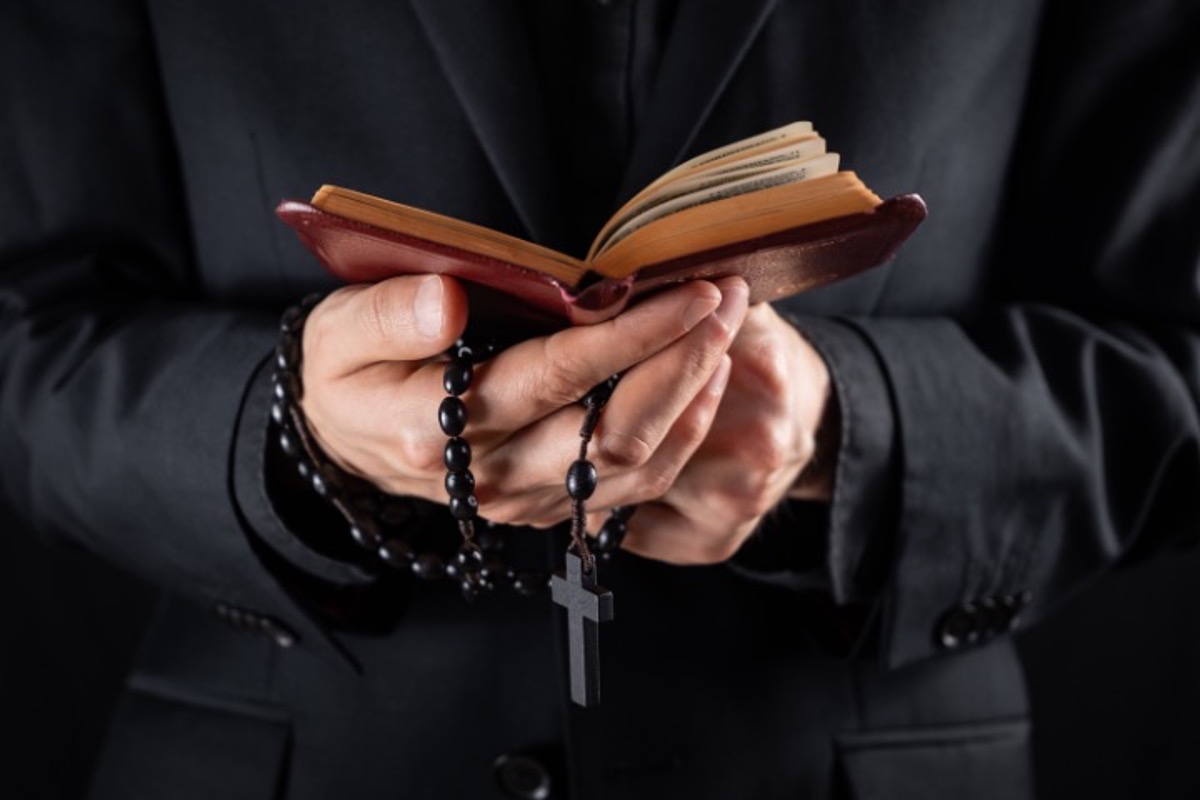


A Spanish priest faces up to three years in prison after being convicted of the “hate crime” of “Islamophobia.”
Last week, the Provincial Court of Málaga found Father Custodio Ballester guilty of inciting hatred for writing an article critical of Islam in 2016 and, in a subsequent interview, reiterating the opinions expressed therein.
Asked by the Catholic News Agency (CNA) about his upcoming sentencing, Ballester said, “The survival of freedom of expression in today’s Spain depends on the ruling in this case. Otherwise, we’ll be headed toward a new Cuban dictatorship.”
In response to a 2016 pastoral letter from Cardinal Juan José Omella Omella of Barcelona titled “The Necessary Dialogue With Islam,” Ballester authored a piece with the contrarian title “The Impossible Dialogue With Islam.”
“I don’t think Monsignor Juan José Omella was particularly inspired when he wrote his Sunday letter,” penned Ballester.
He continued:
This renewed revival of Christian-Muslim dialogue … is far from a reality. Islam does not allow for dialogue. You either believe or you are an infidel who must be subdued one way or another.
“In countries where Muslims hold power, Christians are brutally persecuted and murdered,” he observed. “What dialogue are we talking about, then?”
As to Pope Francis’ attempts to make nice with the Grand Imam of Indonesia — even going so far as to kiss the imam’s hand — Ballester had this to say:
A hug and a photo mean nothing if one lacks the courage to say that Islam has evident elements of violence in the Quran and in the life of Muhammad. If one continues to say that “Islam is a religion of peace,” one only creates confusion and perplexity. And especially if one lacks the courage to place, opposite the figure of Muhammad the warrior, the image of the Crucified One, the Lord of the Universe.
Furthermore:
Let us not fool ourselves, the Islam of today and always, which is what we are trying to reconcile with Christianity, with one hand promotes charitable works, while with the other it arms itself to annihilate all those who refuse to recognize Allah, and Muhammad as the last and definitive prophet of God.
The next year, Ballester participated in a YouTube interview with journalist Armando Robles and another priest, Father Jesús Calvo. According to CNA, “The three discussed the threat of radical Islam to Europe.”
Ballester told CNA his “statements” in the interview and his article “have never been discriminatory or hateful.”
That is, of course, not the way the Association of Spanish Muslims Against Islamophobia sees things. The group filed complaints with the socialist government of Spain accusing Ballester, Robles, and Calvo of “making allegedly Islamophobic statements,” reported CNA.
The court heard those complaints last Wednesday and convicted Ballester. The outcome of the other men’s trials is unclear.
Ballester told CNA:
The prosecution demonstrates with its actions that so-called hate crimes exist to restrict freedom of thought and expression. The Hate Law is legally a “blank law,” or a blank check. Not even the prosecutors themselves know how to define “hate.” They fabricate the crime in each case based on who allegedly committed it, and it’s a one-way crime. They only charge Christians, never Muslims.
A significant segment of the Spanish public has been on Ballester’s side. An online petition in support of Ballester posted by the public-interest law firm Abogados Cristianos (Christian Lawyers) has attracted almost 29,000 signatures as of this writing. “Outside the courtroom,” wrote CNA, “dozens of the priest’s supporters could be seen holding placards demanding his acquittal,” while others gathered more petition signatures. Some civil-liberties organizations also urged the court to acquit.
On the other hand, noted The European Conservative, “the country’s bishops have stayed silent” about Ballester’s plight. Omella — who might, understandably, be miffed over Ballester’s characterization of his 2016 letter — “has only offered private words of support, without issuing a public statement.”
Ballester knows exactly what his trial and conviction are all about. “They want to use me as an example so that others censor themselves,” he said.
Similarly, María García, president of the Spanish Observatory for Religious Freedom and Conscience, said Ballester is in trouble
simply for warning, in the exercise of his freedom of expression and conscience, about the threat of radical jihadism. Defending religious freedom also means protecting the freedom of those, like Father Custodio, who warn of realities that have already caused deaths in our country and in Europe.
Ballester, however, is hopeful that the support he has received will dampen the court’s enthusiasm for punishing him too severely. He told CNA:
People are very angry about the excessive sentences being sought for “hate crimes,” which are comparable to those sought for sexual assault or leaving someone paralyzed in a fight. Political pressure may delay the ruling.
If he is sentenced to prison, Ballester said, he plans to appeal to the European Court of Human Rights.
Whatever happens, though, the former member of the Spanish army’s special forces is prepared to accept it. He told CNA that, although he never saw combat, his training taught him “obedience and resignation in the face of adversity, much more than in the seminary.”
He added:
In the Spanish army’s special forces, we used to say: “Prepare for the worst. The easy stuff has already been planned for.” That’s why I’m calm. If everything goes well, I’ll be even happier.
